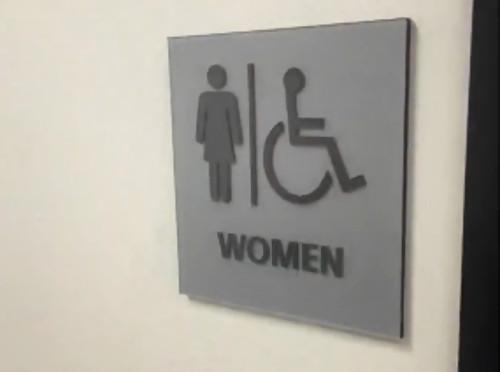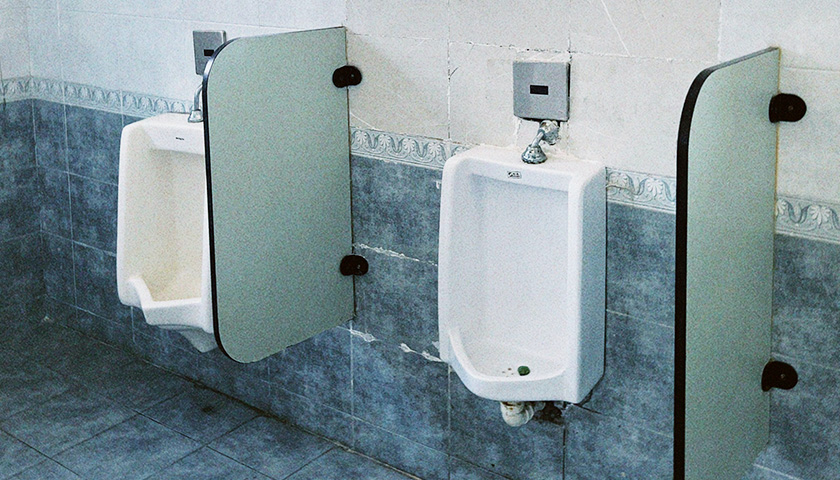An Arizona State University (ASU) student who serves as vice chair of the East Valley Young Republicans discovered a urinal in a women’s restroom and asserted ASU is “putting men’s urinals in the women’s restroom!”
Rachel Hope tweeted on Jan. 26, “ASU caves to the far left by putting men’s urinals in the women’s restroom!! 🤢🤡.” Along with the tweet she displayed a video of entering a women’s restroom and encountering a urinal inside a stall next to a toilet.
ASU caves to the far left by putting men’s urinals in the woman’s restroom!! 🤢🤡 pic.twitter.com/semEfmUsWz
— Rachel Hope (@CoachRachelHope) January 27, 2023
The Arizona Sun Times reached out to Hope about her tweet. She responded, “I’ve absolutely had blowback, many people have told me that it shouldn’t matter, but to me — it doesn’t matter why there’s urinal in a women’s restroom, they shouldn’t be there, and it makes women unsafe.”
 ASU offers gender inclusive housing, which features “gender inclusive bathrooms.” The move has prompted concern that women will be exposed to male genitals, including by underage girls visiting the campus. While the urinal is located inside a stall, there are fears someone used to using urinals would not bother shutting the stall door.
ASU offers gender inclusive housing, which features “gender inclusive bathrooms.” The move has prompted concern that women will be exposed to male genitals, including by underage girls visiting the campus. While the urinal is located inside a stall, there are fears someone used to using urinals would not bother shutting the stall door.
The Sun Times asked ASU why a urinal was placed in a women’s restroom. A university spokesman appeared to state that the urinal had been there for years. “This is not a gender neutral bathroom,” Jerry Gonzalez, Assistant Director of Media Relations and Strategic Communications said. “The restroom in the video, and the men’s one in the same floor of that building, are identical in that they both have a toilet and urinal within the partitions. These two bathrooms were renovated in that configuration around 1998 or 1999, before the concept of gender neutral bathrooms. The design modified these bathrooms to make them ADA accessible. The urinals, regardless of gender, are convenient for catheter use.”
The Tempe-based school could have instead converted a handful of unisex or family bathrooms into gender-neutral restrooms. Other schools around the country have handled the issue that way. There don’t appear to be other universities that have placed urinals in women’s restrooms.
A Twitter account called NovElection2024 took an unofficial poll asking whether other universities should follow ASU’s lead. Of the 578 who voted, 90 percent said no, and 10 percent said yes. One person commented, “Defeats the entire purpose of having separate men’s and women’s bathrooms.” Another person recommended women sue ASU, since it’s “dangerous to those young women.”
Defeats the entire purpose of having separate men's and women's bathrooms.
— YoSniper (@Yo5niper) February 1, 2023
ASU has a broad nondiscrimination policy that includes “gender identity.” It states, “Inappropriate conduct need not rise to the level of a violation of federal or state law to constitute a violation of this policy and to warrant disciplinary action/sanctions.”
The university’s Equal Employment Opportunity policy also applies to gender identity.
After New York City’s The Washington Irving campus installed urinals in a women’s staff bathroom, a woman named Libre de Marulanda recorded a video of the restroom, revealing how she is in direct view of the urinals when she opens the door of a stall.
“This is inviting a crime,” she said during the video. “This is a crime waiting to happen here, indecent exposure in women’s bathrooms. Whether the man would be willingly, intentionally or not, it’s still exposure of genitals. This feels like an invasion of privacy and safety.”
Sarahjane Jones, an associate professor of patient safety at Staffordshire University’s School of Health and Social Care in the UK, tweeted her outrage last June after encountering a man at a urinal in a gender neutral restroom. “I just entered this ‘inclusive toilet’ @sim_manchester at an @HRA_Latest event to find a man using a urinal, which I would have had to talk past to use the cubical,” she said. “This is not an example of inclusively! And is wholly unacceptable.”
ASU is known for its prominent efforts in promoting transgender people. It states on its Educational Outreach and Student Services page, “ASU supports the needs and success of transgender and non-binary gender students through a variety of health, social, wellness and academic resources.”
Campus Reform reported that two ASU professors are using school-sponsored funding to advocate for repealing state laws that ban biological men from competing against women. The college provides a course for teachers in K-12 education called “Creating Affirming Schools for Transgender Students.”
Some progressive governments have taken a different approach. In 2019, the city of Portland, Oregon, eliminated all urinals from its restrooms in the Portland building, which houses administrative offices for the city. Each floor will have at least one restroom open to “any gender,” in most cases a single-stall restroom. There will be 42 “all-user stalls” and 104 sex-specific stalls throughout the building.
– – –
Rachel Alexander is a reporter at The Arizona Sun Times and The Star News Network. Follow Rachel on Twitter. Email tips to [email protected].
Photo “Urinals” by billow926.
Editor’s note: The headline and first paragraph have been updated to clarify the student’s discovery of the urinal in a restroom labeled for use by women.








